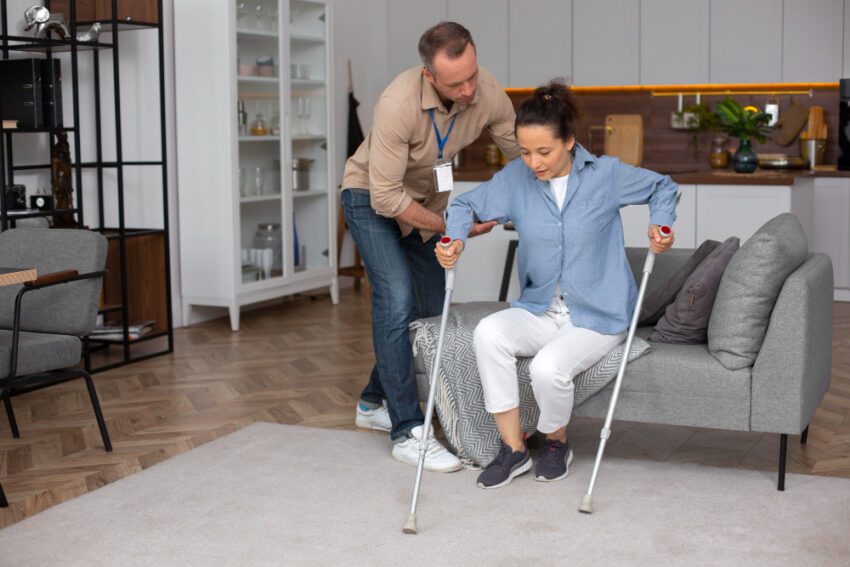Seeing a loved one in pain can be heartbreaking. It is particularly difficult if they have suffered an injury that will take a while to recover from, so you will want to do all that you can to help during this time. There are both physical and mental challenges involved in recovering from an injury, and there is a lot that you can do to provide physical and emotional support during this time. So, if you have a loved one who is in pain and recovering from any kind of injury, this is a post that you should find useful.
Be Proactive With Practical Support
One of the easiest ways to help someone with an injury is to help with practical tasks, such as cooking, cleaning, shopping, getting changed, and booking healthcare and wellness appointments with providers such as RELATYV Home Pain Treatment Now Servicing North Carolina. The trouble is that people often find it hard to ask for help with these tasks, so instead, you should be proactive and take on these jobs without being asked.
Find A Specialist
Another practical way to support a loved one in pain is to find a specialist in the type of pain/injury they have. A specialist will be able to pinpoint the specific issue they are having and develop the most effective treatment plan. If they have a knee injury, for example, you can find non surgical knee pain treatment in Asheville, NC. Cellular treatment is proven to be highly effective for various knee injuries, including knee osteoarthritis, ACL injuries, tendinopathy, and meniscus injuries. Those suffering from injury are often so focused on pain management and getting by each day that they do not have the time or energy to seek out a specialist, so this can be an incredibly valuable way to support a loved one.
Go To Appointments With Them
It is likely that your loved one will have numerous appointments that they need to attend during the recovery process. Going with them to these appointments is a good idea for two reasons. First, it gives you the chance to listen and speak with the doctor so that you can learn as much about the injury as possible and determine the best ways to help. Secondly, you can provide moral support – attending appointments can be daunting, so accompanying them will make it easier.
Provide Emotional Support
As mentioned in the intro, there are both physical and mental challenges involved in an injury. One of the best things you can do for a loved one as they recover is to provide emotional support by listening to them, offering a shoulder to cry on, and empathizing with their situation. There are sure to be both bad days and good days, and you should be a positive presence throughout.
It is hard to see a loved one in pain and struggling with injury recovery. You will want to do what you can, but it is not always clear how you can help. The above are a few of the best things that you can do to provide practical and emotional support that will help get them on the road to recovery before long.


